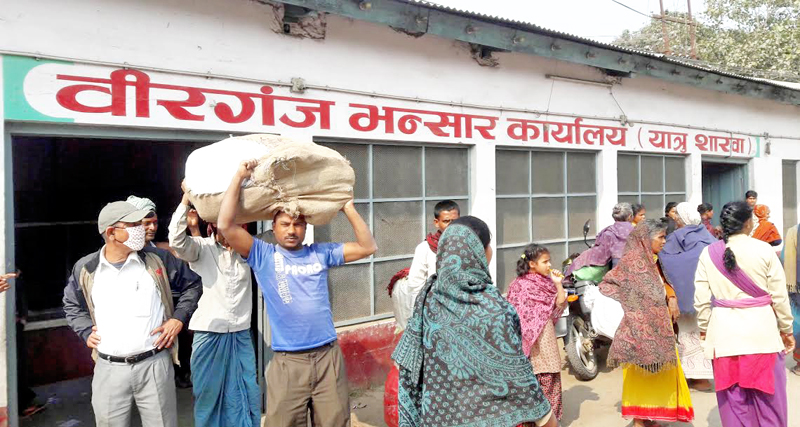Bill of export mandatory for imports of over Rs 5,000 from India
Kathmandu, September 9
Nepali traders importing goods from India will now have to mandatorily submit ‘bill of export’ from Indian firms and authorised dealers. The Department of Customs (DoC) has asked all the customs points to seek bill of export in imports of above Rs 5,000. Earlier, the bill of export was not required for import of goods worth up to Rs 25,000. The DoC has slashed the amount from Rs 25,000 to Rs 5,000 since last week.
The DoC has asked customs points to seek bill of export along with other documents to carry out the customs valuation. Once the Indian customs certify the exported goods, the Indian exporter can seek refund of the goods and services tax (GST) from their government.
The DoC has said that it has made the bill of export mandatory to control unauthorised trade and announced that it would not accept the cargoes imported from India without the bill of export. Indian customs have started certifying only those export bills presented from the manufacturing companies or their authorised dealers.
The new rule of the DoC has made it harder for small traders at the border points to import goods from India. However, the DoC has said that it is difficult for the small traders to import from the border towns of India as Indian customs do not accept the GST bills of the local suppliers if they are not authorised dealers. Earlier, the supplier firms of the border towns registered in GST had utilised the facility in export, but recently the Indian customs has asked for the authorised dealer code in GST bill so that they can issue bill of export.
Though the new rule has affected the small traders at the border points, DoC has said that it has allowed import of only up to Rs 5,000 as personal belongings without customs declaration as the Indian government has tightened its rule on export.
“Indian customs has allowed only manufacturing firms and authorised dealers to export since July after GST was implemented,” said Kulraj Gnawali, spokesperson for DoC, adding, “Since the provision was enforced in India, it was difficult for small traders to import from India.”
There is zero GST on export of goods, and the Indian exporters get GST refund once the customs certify the export. As per customs sources, the Indian government wants to encourage only manufacturers and their authorised dealers to export goods so that the GST refund can be further simplified as the number of exporters will be limited.
According to Krishna Basnet, chief of the Biratnagar Customs, Indian customs has made the authorised dealer code mandatory in GST bill to cope with fake GST bills. The bank accounts of the exporters are interfaced with the Indian customs, through which the customs officials can easily check whether the importers have deposited the bill (GST) amount in banks or not. According to Basnet, this system has also minimised the chances of under-invoicing of goods during import.






